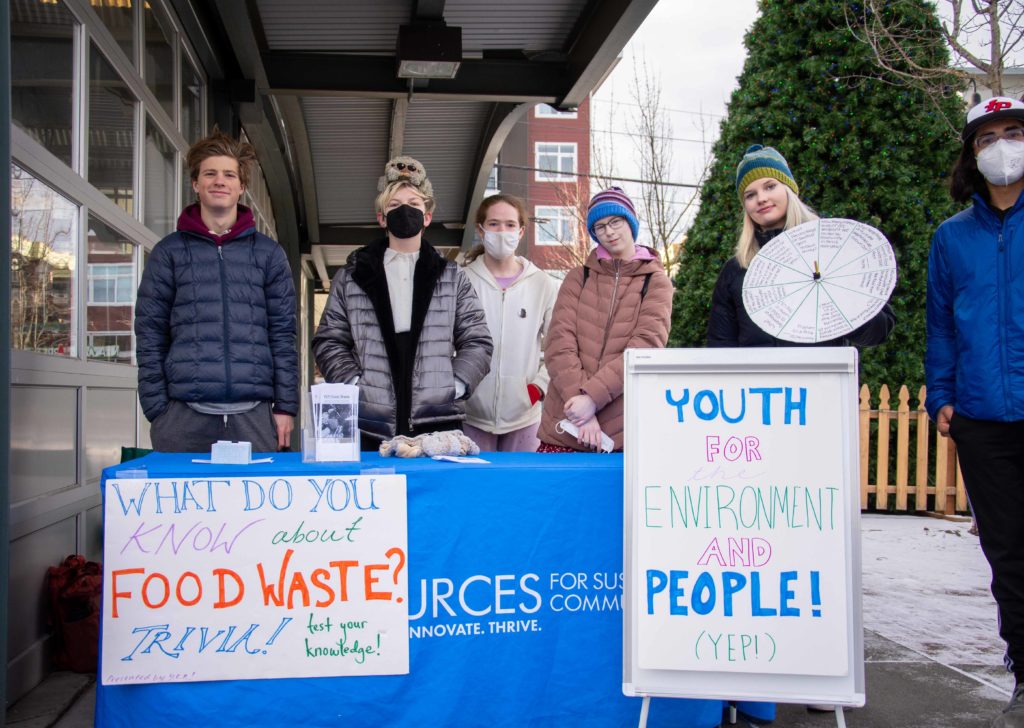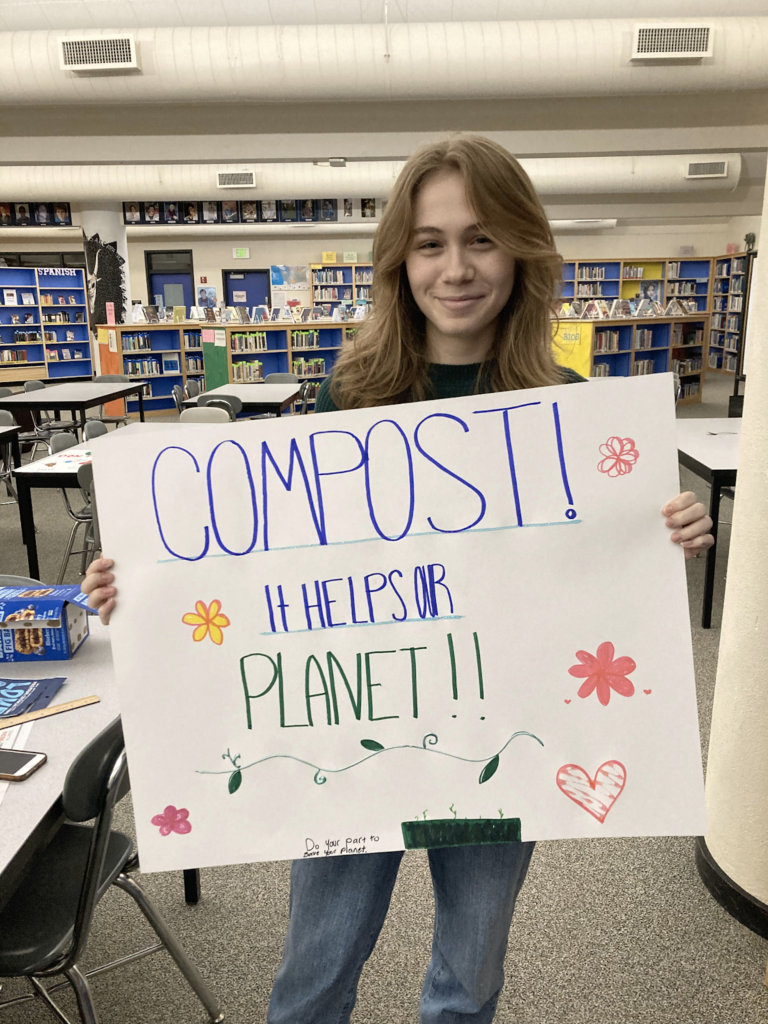Every year, students in our Youth for the Environment and People (YEP!) program come together to explore climate solutions, discuss their ideas, and lead their own climate action projects. This fall, students decided to focus on food waste and learn about its climate impacts. Over the course of 10 weeks, they designed and implemented their own action projects. See some photos of their work!
“It was really nice to do something where you know you’re making a difference and be able to do it alongside others your age. It just makes it a lot more fun and meaningful.” – Dezerey, grade 12
Youth are acutely aware of the state of our planet and society and how it will affect their future. It’s not a matter of teaching students that they should care about climate change–they are already leading the charge–-but rather offering them the tools to turn their passion into action. Youth for the Environment and People (YEP!) does just that.
This year, high school students in Whatcom (led by RE Sources) and Skagit County (led by North Cascades Institute) tackled food waste in two separate cohorts. Each group learned that reducing food waste is the number one solution to climate change in the Project Drawdown framework, and that it’s about more than just the scraps left on your plate.

Each week, students met and grew their skills in leadership, decision-making, project planning and collaboration. They not only learned how to reduce food waste, but encouraged others to act throughout their project. Students began YEP! not knowing one another. Over the weeks, they grew into a supportive, tight-knit group full of laughter and shared memories.
On two Saturdays, students from both cohorts woke up early to get outside together. At Larrabee State Park, they learned from park staff about local invasive plants and then got to work cutting, tugging, and removing vines from native trees.
At Kukutali State Park and Preserve, students learned about the local tribal history of the place and how to find some of the ‘first foods’ in the area from Jen Willup, an educator and member of the Swinomish Indian Tribal Community. And yes, spontaneous games of tag broke out! As one student said, “Physically working outdoors helped us learn about the different ways to approach climate action, and become more comfortable with each other.”
Many of these new experiences didn’t feel like work to this energetic bunch, yet the culminating experience of YEP! is planning and implementing a student-led action project to benefit the community and that is real, valuable work. Here are the actions they took:
Whatcom: Supported Bellingham Food Bank and food waste education

As students explored the theme of food waste, they became passionate about the interconnection of food justice and chose a project that addressed both (and took advantage of their artistic talents!). First, they connected with the Bellingham Farmers Market to set up a booth one chilly Saturday and educate the public about food waste — equipped with a fully DIY trivia wheel, hand-made signs, and brochures. Then, students hand-painted 36 ceramic bowls with the help of CreativiTea, requested donated coupons from local restaurants to put inside them, and sold the bowls to raise money for the Bellingham Food Bank. On their last Saturday together, students stood in front of The RE Store, bowls in hand, to tell their story and raised almost $1,000 for the food bank. Afterwards, a student reflected that “doing so gave me hope for our generation.”
Skagit: Improved composting at their school and published an article in local papers

For their action project, the Skagit cohort decided to focus on improving composting at their local schools, as well as educating the local community about the importance of composting and its effect on reducing climate change. After investigating possible composting options at three schools in the area, they determined that building on the pre-existing composting at Sedro-Woolley High School would have the greatest impact, in particular by enhancing education and signage. So they created six signs that were posted above the compost bins. In addition, the students wrote an article about the importance of composting, requiring them to research information and reach out to local news sources–resulting in the article being published in four places! See their article here.
This fall we saw a record number of applicants to our Whatcom County cohort and heard current students express desire for opportunities to engage in climate change year-round. Whatcom youth are ready to take more climate action and we want to support them. That’s why we’re excited to announce we are expanding YEP! and offering it again this Spring! You can find more information here.
